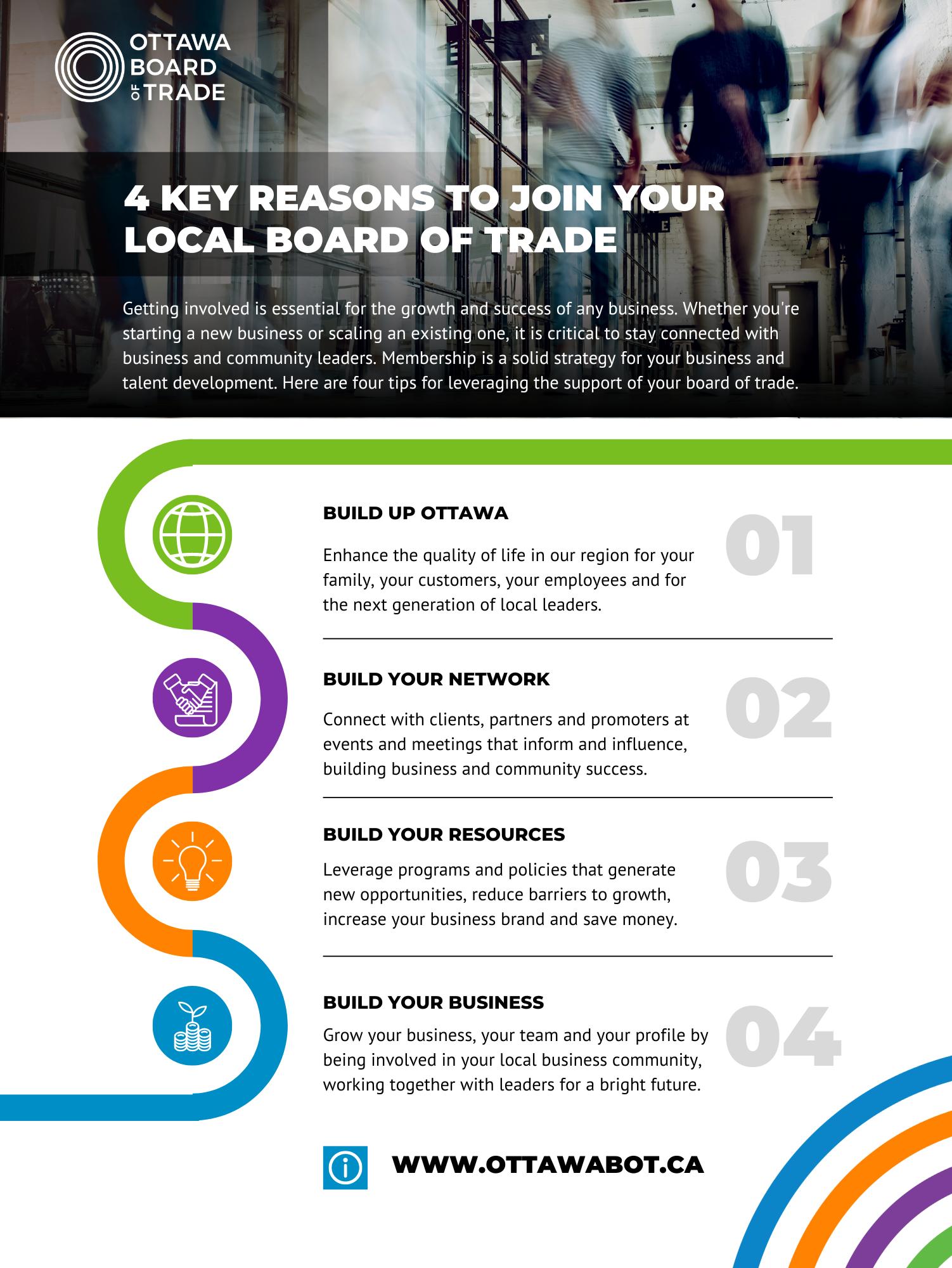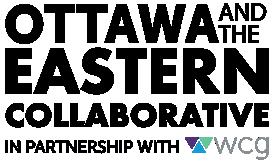






In last year’s edition of this survey, I wrote about the “scarcity mindset” setting in among consumers, workers and business leaders across Ottawa. One year later, that mindset has evolved — deepened even — into something more fragile and destabilizing: precarity.
This year’s Welch LLP Business Growth Survey, conducted with nearly 250 business leaders and owners across our city, finds confidence in Ottawa’s business community has dropped to its lowest level since 2020 — the height of the pandemic — and has now declined four years in a row. Only six per cent of respondents say they are more confident in the local economy than a year ago. Fewer are reporting revenue growth, profitability is down and optimism for the year ahead has all but vanished.
The survey was conducted before Canadians went to the polls on April 28. But the results send a clear message to the new federal government: rebuilding business confidence must be a priority. As our economy faces mounting uncertainty — from the geopolitical and economic disruption of a second Trump presidency, to ongoing technological shifts, to structural changes in how and where people work — Ottawa’s business leaders are looking for stability, vision and support.
They are also looking for action. Only 11 per cent believe the federal government is adequately investing in Ottawa as the nation’s capital. Most view the federal downsizing of real estate as “slow” and the impact of shrinking the public service as negative. These perceptions add to a sense of precarity that is now defining the city’s economic outlook.
Thank you to all the leaders who took part in this year’s survey. Your input remains critical to shaping a more resilient, prosperous and confident Ottawa.

David Coletto Chief Executive and Founder, Abacus Data Board Member, Ottawa Board of Trade
We couldn’t have asked for better timing.
About two years ago, we started planning our 2025 business growth survey report around the federal election, slated for October of this year at the latest. Well, of course events overtook that date, and here we are in May with a newly minted Liberal minority government. There couldn’t be a better time for the Ottawa business community to weigh in with its priorities for the new administration.
This is especially true as I review some of the results of this year’s survey. Obviously, the tides have turned. We see our business confidence index slipping to its lowest level since 2020, in large part due to weakened confidence in the local economy and lower future market expectations. Almost 80 per cent of local businesses feel that U.S. President Donald Trump and his administration will have a mostly or very negative effect on the region. More than 80 per cent say the federal government does not understand the needs of small businesses. About one-third believe a reduction in the size of the federal civil service will have a very negative impact on Ottawa. And “slow” would be the keyword when it comes to describing the feds’ progress with disposing of prime real estate assets in this city.
What most caught my attention, though, was that about threequarters of respondents believe that the federal government’s investments in Ottawa as a national capital are inadequate. What does this mean? And how can it be addressed?
Of course, the federal government cannot concern itself only with Ottawa. But, it’s equally true that its operations and policies have an outsized impact on this city.
Fortunately, we’ve got many advocacy groups, both national and local, that are poised to work with federal officials on a mandate going forward. So let’s not be shy in putting forward the priorities of our business community, from tech to tourism, and from real estate to small business. It’s time to make it clear how the National Capital Region can have a more productive and efficient relationship with the federal government, and how businesses here and elsewhere in the country can benefit.

Anne Howland Editor In Chief Ottawa Business Journal

The Welch LLP Business Growth Survey remains one of the clearest signals of how our local business community is faring and what lies ahead. This year’s results clearly reflect the backdrop of our challenging political environment, with continued declines in overall business confidence.
Still, within this complexity, there’s a current of ambition. Many businesses continue to grow. Almost half of respondents reported increases in revenues — a sign of cautious optimism.
This duality is what makes the insights in this year’s survey especially valuable as a new federal government begins to tackle our serious economic challenges as a community and country.
At Welch, we believe that strong communities need strong private-sector ecosystems. And in Ottawa, our public-private balance remains a defining opportunity.
If we want to build a more resilient and dynamic economy, we need to strengthen the foundation for entrepreneurship, investment and private-sector job creation.
This year’s findings make that more urgent, not less.
To our presenting partners — the Ottawa Business Journal, Ottawa Board of Trade, and Abacus Data — and to our sponsors, including Perley-Robertson, Hill & McDougall; Le Regroupement des gens d’affaires de la Capitale nationale (RGA); WCG; and the Sprott School of Business: thank you. Your collaboration continues to drive important conversations forward.
As always, Welch LLP is proud to contribute to this work, not just through insight, but through action.
We hope this report offers value to everyone invested in Ottawa’s future, whether you lead a business, support one or are simply curious about where our city is going next.

Chris Meyers
CPA, CA, Partner Welch LLP, Ottawa Office
It is my pleasure to share the 2025 edition of the Welch LLP Business Growth Survey, an essential snapshot of our local economy and a valuable tool for decision-making. My thanks to Welch LLP, the Ottawa Business Journal and Abacus Data for their continued leadership in bringing this important report to life.
The findings of this year’s survey make one thing clear: we are operating in a period of tremendous uncertainty. Global instability, shifting policies and a volatile trade environment — especially with our largest trading partner — are influencing every sector of our economy. In this context, restoring and strengthening business and investor confidence must be job one for all economic stakeholders and elected officials. Confidence is the foundation for growth, investment and long-term prosperity.
And yet, this uncertainty is also a powerful catalyst. It creates the conditions for bold ambition, deeper collaboration and breakthrough innovation. It pushes us to rethink the status quo and take decisive action on the issues that matter most. At the Ottawa Board of Trade, we remain committed to seizing this moment. We are focused on leveraging our local assets, advocating for policies that unlock our full economic potential and supporting leaders as they pursue new trade opportunities with the U.S. and global partners.
This year’s survey results affirm the urgent need for action on Ottawa Board of Trade priorities: revitalizing downtown, enabling innovation and trade, investing in infrastructure and housing, building talent pipelines and modernizing regulations. These are central to our 2025 Federal Election Priorities found at www.ottawabot.ca.
This report is more than a reflection, it’s a call to action. A tool for businesses, governments and community partners to chart a more resilient and prosperous path forward. Let’s use this data to spark dialogue, shape strategy and build a more competitive and inclusive economy, one that positions Ottawa as a national leader and global player.
Together, we can turn challenge into opportunity and unlock the full promise of Canada’s capital.

Sueling Ching President and CEO Ottawa Board of Trade
“If
you’re a federal public servant and you’re wondering if they’re going to lay people off in the next few years, maybe you hesitate before buying a new home or buying a new car or making other major purchases. Some clarity around what the plan is would be very, very helpful.”
— Ottawa Mayor Mark Sutcliffe
PRODUCED BY
Great River Media
PO Box 91585, Ottawa, ON K1W 1KO
PUBLISHER
Michael Curran
EDITOR IN CHIEF
Anne Howland
VICE-PRESIDENT
SALES AND MARKETING
Victoria Stewart
ADVERTISING SALES
Wendy Baily
Cindy Cutts
Eric Dupuis
CREATIVE DIRECTOR
Tanya Connolly-Holmes
GRAPHIC DESIGNER
Celine Paquette
FINANCE
Cheryl Schunk
IN PARTNERSHIP WITH
TITLE SPONSOR
SUPPORTING SPONSORS

PRIMARY PARTNERS

In your last fiscal year, did your sales and/or revenue increase, decrease, or stay about the same from the previous year?
How does your net income in your most recently completed fiscal year compare to the previous year?
Over the next year, do you expect the market for your business sector to ...
In the next year, do you plan to ...
Compared to a year ago, is credit ...
n EASIER TO ACCESS n ABOUT THE SAME n HARDER TO ACCESS
Compared to a year ago, would you say that your confidence in the local economy has …
n INCREASED n STAYED THE SAME n DECLINED
“Even without the tariff situation, today’s business environment is challenging for small businesses in Ottawa and across the country.”
Canadian Federation of Independent Business
‘I’m
By Mia Jensen
Ottawa Mayor Mark Sutcliffe spoke with the Ottawa Business Journal prior to the April 28 election to break down the issues he hopes to prioritize with the new prime minister and government and the challenge of getting those issues noticed.
“I learned very early on when I became mayor just how important the relationship with other levels of government is,” Sutcliffe said. “When you’re mayor, you spend a lot of time asking for help from other levels of government … A big part of my job is to have a great relationship with whoever the government is and I’m happy that, so far, I’ve been able to do that with the Liberal government here in Ottawa and the Progressive Conservative government at Queen’s Park.”
Since the federal election was called in March, the mayor has doubled down on the issues he’d like to see prioritized in the capital. This includes his “Fairness for Ottawa” campaign — to require the federal government to up its property tax payments on Ottawa assets it has “undervalued” — and his push for support on downtown revitalization efforts.
Sutcliffe said having a prime minister with ties to Ottawa could bring pros and cons when it comes to managing municipal issues.
“We are the place where all the members of Parliament gather on a regular basis. It was interesting with the previous prime minister, Justin Trudeau. When he would go to Vancouver for a visit, typically he could see the local mayor. But he worked and lived in Ottawa, so he was never visiting. It is an interesting dynamic, that we’re close, but (Ottawa is) never part of the same structured outreach by the federal government.”
And, Sutcliffe said, “Because we’re so closely associated with the seat of government, I think sometimes federal parties are concerned about looking like they’re putting too much money into
Ottawa. There’s a risk associated with that.”
While those challenges remain, he said having a prime minister with close ties to the city could have its benefits.
“If we can take advantage of that and make sure we have a strong working relationship, (we can make sure) that local issues are top of mind. That’s somebody who’s going to have to get re-elected in a few years in the riding they’re serving. They’ll have to demonstrate that they weren’t just doing a good job for all Canadians, but for their local constituents as well.”
Sutcliffe broke down some of his top priorities for working alongside the new federal government. Here’s what he highlighted.
More than 40 per cent of the federal government’s public service employees are based in the National Capital Region, representing a significant portion of workers in Ottawa.
Layoffs are already anticipated over the next few years, but Sutcliffe said recent political rhetoric has raised concerns that more could be coming. The city’s downtown, and its businesses, are still contending with reduced foot traffic through the core as a result of work-fromhome orders during the pandemic. Though workers are back in the office three days a week, Sutcliffe said job cuts could be a blow without support from the feds.
“There’s a lot of uncertainty and that leads to a declining consumer confidence,” he said. “If you’re a federal public servant and you’re wondering if they’re going to lay people off in the next few years, maybe you hesitate before buying a new home or buying a new car or making other major purchases. Some clarity around what the plan is would be very, very helpful.”
If layoffs do come, he said the federal government should be prepared to help workers retrain to take on roles in other industries. He cited the 1990s’ Regional
Economic Diversification Opportunities (REDO) program — a federal initiative designed to address the economic fallout of downsizing — as an example worth emulating.
“If you’re a federal employee and you’ve been working for the federal government for 20 years, (there should be) some resources available for reskilling and retraining to position you to find a job in another industry,” Sutcliffe said. “We’ve seen examples of the federal government teaming up to provide support to a community when their major industry is going through a transition. So it makes sense to me that it would happen in Ottawa as well.”
Removing the mystery around the federal disposal list
It’s been almost two years since the federal government released its “disposal list” detailing the real estate assets in Ottawa it plans to sell, including L’Esplanade Laurier downtown, the Sir Charles Tupper Building on Riverside Drive, and the 1500 Bronson Building and Annex.
For a city keen on revitalizing its ailing downtown core, Sutcliffe said the lack of information from the federal government about its plans is a major barrier. As a result, he said he wants the government to be more transparent and actively involve the city in its plan for each asset to determine how best to utilize the buildings and land.
“If the federal government is going to reduce its footprint in the downtown core, if they’re going to get rid of some buildings, if there will be fewer people going downtown to work, we need a plan,” he said. “As the major landowner and major employer in Ottawa, (the federal government) owns more land than anybody else. We should be their partners in that place, where we work together.”
Giving Ottawa and Gatineau a bigger voice in local governance
In the last year, Sutcliffe has solidified a partnership with Gatineau Mayor
Overall, do you think that the federal government, as a major property owner and employer, is adequately investing in Ottawa as a national capital?
Maude Marquis-Bissonnette to push for federal involvement on issues in the National Capital Region, from downtown revitalization planning and public transit funding to affordable housing and investment in climate-resilient projects.
But another thing the mayors agree on is that the region needs more representation on the National Capital Commission.
“I’ve got a very constructive working relationship with the team at the NCC,” Sutcliffe said. “The mayor of Gatineau and I attend board meetings as observers. It’s sometimes said that we are on the board but we’re non-voting participants.”
While the lands and public spaces cared for by the NCC are federally owned, Sutcliffe said their location within Ottawa city limits gives the city a stake in how they are managed. As a result, he said he’d like
to see more local representation in the decision-making process.
“Typically, the minister responsible for the National Capital Region was an Ottawa MP,” he said. “More recently, they’ve been members of Parliament from other communities. Nothing against the people who held those responsibilities more recently, but I think if you’re going to have oversight of the NCC, you should be a local MP. You should be someone who knows the city of Ottawa.”
Sutcliffe has been pushing for the federal government to “pay its fair share” of property taxes to the city since last summer.
According to Sutcliffe, the federal government currently pays $164 million in property taxes, a decrease from the $194 million it paid nine years ago. He said the
difference is the result of the government “undervaluing their own assets to get away with paying less.”
As a result, he said one of his top priorities with the new government will be to push for Payments in Lieu of Taxes (PILTs) at market value. He hasn’t had much success so far, with the federal court dealing a blow to the campaign earlier this year with a decision the city said it would appeal, but Sutcliffe said he won’t be deterred.
“I’m never going to stop fighting for Ottawa’s fair share. As I look out my window at City Hall, I see one building owned by a private owner who pays a certain amount of property taxes and one owned by the federal government that pays much less. I don’t think that’s fair and it means all the other property owners in Ottawa, including residents, have to pay more.”
“At the Ottawa Board of Trade, we remain committed to seizing this moment. We are focused on leveraging our local assets, advocating for policies that unlock our full economic potential and supporting leaders as they pursue new trade opportunities with the U.S. and global partners.”
— Sueling Ching, President and CEO, Ottawa Board of Trade
Thinking about how the federal government has handled the reduction in its real estate holdings, first announced in May 2023, what one word best describes your view of the process to date?
From a business perspective, do you have an overall positive or negative perception of the National Capital Commission and its management of its properties in the National Capital Region?
“This is a moment that calls for coordinated ambition. If the private sector is to be the engine of renewal, it needs fuel, space and support.”
Chris Meyers, CPA, CA Partner, Welch LLP
Would a reduction in the size of the federal public service have a positive, neutral, or negative impact on your business?
How many days per week do you think federal public servants should be required to work in a government office?
Regardless of who wins the next federal election, tell us whether you want to see the following policies of the current government continue or whether you want to see them reversed or changed.
n
What type of impact will the Trump administration and its policies have on Ottawa-Gatineau over the next four years?
Does your business use any federal government service to export or reach international markets? Is it helpful?
APPLICABLE TO THEIR BUSINESS
ASSISTANCE

OBy Pascal Chan, Vice-President, Strategic Policy & Supply Chains, Canadian Chamber of Commerce
n a pre-election Canadian Chamber of Commerce mission to the U.S., I moderated a discussion in which one of the panellists, a self-described “D.C. swamp rat,” cited an old political adage: “Washington runs on gossip.”
Her observation wouldn’t have been out of place here, where the so-called “Ottawa Bubble” has been churning out rumour after rumour for the better part of a year, prompting speculation on election timing, prime ministerial succession, and the future of Canada’s relationship with our largest trading partner and closest ally.
Having grown up in the nation’s capital, I know that we’re certainly more attuned to these conversations than we might be in places where Parliament’s Gothic revival buildings are out of sight and therefore out of mind. Here, whispers from the halls of power are transmitted via a game of broken telephone through parliamentary offices, Centretown lobby shops, public service cubicles, newsroom floors, and, eventually, to dinner tables from Orléans to Kanata.
While everything inevitably takes place against the backdrop of government — with nearly half of the federal workforce based in the National Capital Region — it’s critical that we remember how national politics and policy impact the local businesses that truly drive our economy.
And it hasn’t been easy for them.
I spend a good chunk of my time talking about supply chains and how important it is for Canadian businesses to be able to count on the reliable and efficient movement of goods; after all, two-thirds of Canada’s GDP is dependent on trade.
I often point out that our supply chains have been subject to interruptions due to extreme weather events. Readers in Ottawa will recall the 2023 wildfires in northern Ontario and Quebec that burned out of control for weeks, causing smoke to blanket the city for several days in June.
Another damaging interruption I regularly raise is the COVID-19 pandemic, which caused catastrophic economic damage for businesses everywhere in the world. That said, many businesses here in Ottawa suffered an additional month of closures due to the “Freedom Convoy” occupation. Hundreds of businesses in the blockaded areas lost revenue — the Rideau Centre alone was estimated to have lost $3 million per day.
‘Little
Businesses have also not been immune to supply chain disruptions resulting from geopolitical conflicts, such as Russia’s fullscale illegal invasion of Ukraine or Houthi rebel attacks on commercial ships in the Red Sea, as well as global events, such as a severe drought in the Panama Canal or a strike in the U.S. East and Gulf Coast ports. Finally, Canada has had its own labour issues, with work stoppages hitting their highest level since 1986. In less than two years, we’ve seen the shutdown of Vancouver grain terminals, the Canadian rail network, the Port of Montreal, our ports in British Columbia twice, and the St. Lawrence Seaway. We also had to contend with the threat of strikes from our border services agents and Air Canada pilots. Not long ago, this many significant labour disruptions in such a short window would have seemed unthinkable; now, they’ve all but become the norm.
Today, faced with the second iteration of the Trump administration, Canadian businesses have little in the
way of certainty. The chamber’s U.S. Tariff Exposure Index showed Ottawa-Gatineau’s exports headed south of the border in 2023 were valued at more than $8 billion, for a value of $5,028 per capita.
We need our new federal government to be laser-focused on enabling businesses to grow Canada’s economy. That means:
Removing barriers to internal trade: Interprovincial trade drives one-fifth of Canada’s GDP, yet internal trade barriers act like a 21 per cent tariff. Removing them could boost GDP per capita by four per cent. That’s real growth, right here at home, at a time when businesses and workers need it most.
Diversifying our trading partners: It’s become clear that we can’t rely solely on the United States anymore and so we need to look at other trading partners, like the Indo-Pacific, the European Union and the United Kingdom. We have existing trade deals and relationships, now we need to capitalize on market potential.
Improving and securing our supply chains: If we can’t move it, we can’t sell it, so even if we could replace the trade we have with the U.S. overnight, we would run into capacity issues almost immediately. We need to build tradeenabling infrastructure without spending decades drawing out permitting processes. We also need to stop labour disruptions from repeatedly shutting everything down and damaging our global reputation.
Make no mistake, the imposition of tariffs is going to further harm both Americans and Canadians, but our new federal government has an opportunity to demonstrate real ambition that will allow us to meet the moment and capitalize on our economic potential.
Businesses in Ottawa and across the country are ready to grow our economy — it’s time for federal leadership to be on the same page.

Want to make data-driven decisions?
An OBJ Insider Group subscription gives your team access to powerful news and data. Almost 60 industry lists, 800+ businesses and more than 1,000 local executives.
Sign up today for News+Data with OBJ Insider.
Exclusive online content
OBJ Data Centre
Printed publications mailed
Email newsletter summaries
Monthly prize draws
Easy management of group

First month free.


What is the most important thing the federal government can do to support Ottawa’s technology sector?
Should the federal government play a leadership or supporting role when it comes to regulations around AI?
“At the Sprott School of Business, we support Ottawa businesses in developing innovative ideas that support and sustain our local economy. Through our Student Consulting Group, TIM program, course projects, internships, and more, Sprott students and faculty help uncover new, stable pathways for growth in a changing world.”
— Howard Nemiroff, Dean Sprott School of Business, Carleton University
Have the federal government’s policies and processes around procurement become better, worse, or have they stayed about the same in the past few years?
“This should be viewed as a national project in support of Canadian economic security.”
Council of Canadian Innovators


ABy Daniel Perry, Director of Federal Affairs, Council of Canadian Innovators
s the nation’s capital, Ottawa plays a unique role in Canada’s economy.
The city’s economy is deeply connected to both the public sector and the technology industry. The federal government is the city’s largest employer and property owner, shaping everything from downtown business activity to the region’s commercial real estate market. At the same time, Ottawa’s tech sector has long been a driver of high-paying jobs and global competitiveness, anchored by companies like Ranovus, Tehama, Ross Video and NuEnergy.
Living at the intersection of government and the technology sector, Ottawa business leaders are uniquely positioned to understand an important reality of the innovation economy: in every thriving tech hub around the world, you will find a strong collaborative partnership between policymakers and private-sector firms.
The Council of Canadian Innovators has been delivering this message for nearly a decade and working with federal and provincial governments to implement policies that will drive economic growth and wealth creation.
We have always believed that homegrown Canadian-headquartered technology companies are the most important vehicle for productivity growth and national prosperity, even as various governments have too often been fixated on branch-plant foreign investments from global technology multinationals.
As Canada grapples with the farreaching implications of the U.S. trade war, we now see another reason to pull back from our fixation on foreign direct investment.
We need a federal government that acts as a partner, not a barrier, to economic growth. With the right policies in place,
our technology firms can be the engine of a 21st-century Canadian economy that is more resilient, productive and prosperous than ever before.
What’s more, in an era of increasing geopolitical risk, economic security and technological leadership must go hand in hand. The new government should prioritize investments in critical technology sectors by aligning defence and security spending with economic growth.
Ottawa is already home to world-class cybersecurity firms and AI pioneers, but they would benefit from the same kind of enthusiastic political support that we’ve historically seen for an American tech giant opening up a new regional satellite office.
The new federal government must take decisive action to create an environment where Canadian companies can thrive and not elevate only foreign multinational companies. This includes modernizing the tax system, leveraging government procurement as a tool for innovation, and ensuring that Canada’s tech firms have access to the capital, talent and markets they need to scale.
What does this mean in practice? We have some specific ideas. On behalf of our members, the Council of Canadian
Innovators has developed “A Mandate to Innovate,” a policy brief with concrete actions that the federal government can adopt to better support our domestic technology companies.
Here’s just one concrete example: At all levels, government procurement in Canada represents roughly 15 per cent of GDP. That’s roughly equivalent to the size of the entire Alberta economy. Yet procurement is highly dysfunctional and many government policies serve to steer the lion’s share of contracts to foreign multinationals, in spite of the fact that there are Canadian suppliers that can offer better alternatives.
We have specific ideas for how to reform government procurement. This should be viewed as a national project in support of Canadian economic security.
But procurement is just one example. There are plenty of other areas where political leadership, in partnership with the private sector, can yield huge benefits for the Canadian economy.
Innovation is not a niche issue — it is the foundation of prosperity, competitiveness and economic security. It’s time for the federal government to make this the cornerstone of its economic strategy.
The new federal government must take decisive action to create an environment where Canadian companies can thrive and not elevate only foreign multinational companies.
By David Perry and Paul LaBarge
Our sovereignty is being denigrated. Our economy is under siege.
We are in an economic war, whether we want to admit it or not, and our response cannot be timid. These are challenges that demand bold thinking and brave policy, not half-measures or endless bureaucratic delays.
This is not the time to merely spend, this is the time to invest. If this were a military conflict, our nation would be fully mobilizing. This is a global economic war and we need to marshal our domestic capital like never before.
There’s a simple, proven tool right in front of us: flow-through shares (FTS). We already know they work and this has become the right time to extend this powerhouse investment incentive tool to Canada’s technology sector.
FTS are not a new or risky experiment. They are one of Canada’s oldest and most successful investment tools. For 71 years, FTS have fuelled Canada’s mining sector, propelling it to the global stage. Canadian companies now account for nearly half of the world’s mining activity. Oil and gas firms use FTS to great effect. Renewable energy has benefited for nearly three decades.
Companies “flow” qualifying expenses to investors, who claim a tax deduction. In 2024 alone, mining companies raised more than $1 billion on the TSX using this mechanism — the highest level of FTS activity in five years. Meanwhile, the tech sector is contributing more than $125 billion to Canada’s GDP, representing nearly six per cent of our economy. That is almost equal to mining, yet is denied the same access to this powerful financing tool. That’s a mistake we cannot afford to keep making.
And here’s something that’s often overlooked: more than 10 per cent of Canada’s entire tech sector is right here in the National Capital Region. Ottawa is already a major beneficiary of this growth. Kanata North Business Park is the nation’s largest tech park and generates more than $13 billion annually. Imagine what Ottawa’s economy could look like if we doubled down on this success. If we’re serious about growing Ottawa’s economy, then we need to get serious about the answer, which is to grow tech.
Right now, the average Canadian doesn’t have a simple or direct way to invest in the future of our domestic technology sector. Ottawa has made it harder, not easier, for people to invest in their own country’s prosperity.
Our government may have many skills, but selecting which startups to fund is not one of them. Let Canadians make those decisions. Let the people who understand risk — who are willing to invest their own money — place those bets.
The benefit? It’s not just an investment incentive and it does mean up to a 100 per cent tax deduction, but investments generate employment, stimulate supplier businesses, grow tax revenues and feed into CPP contributions for all Canadians. More importantly, they build the backbone of communities right across the country.
We cannot ignore what’s happening beyond our borders. The global turmoil unleashed by U.S. President Donald Trump’s aggressive trade actions only accelerates the urgency for Canada to
secure its economic independence.
Our trading partners are weaponizing tariffs and foreign capital is quick to flee at the first sign of volatility. If we sit idle, our best opportunities — our brightest founders and fastest-growing companies — will continue to be picked off by foreign investors or wither and die. Investment is the lifeblood of tech. This is about sovereignty just as much as prosperity.
This is not a lone voice in the wilderness
Our campaign, Canada Flow-Through Shares, is backed by a coalition of tax lawyers, venture capitalists, angel investors, CEOs, business groups and tech industry analysts. The Canadian Chamber of Commerce and the Toronto Stock Exchange are calling for this change. Just imagine what tech could do with new investments, chosen by investors.
Let’s be clear: we’re not asking for subsidies, bailouts or governmentselected handouts. We’re asking to be allowed to put our money where our future is.
We don’t need the federal government to play kingmaker with taxpayers’ dollars. The market — and Canadians willing to take a risk — are far better suited to the task. Give us the FTS tool that will help us build the economy and the future we deserve.


David Perry is a 40-year entrepreneur living in Gatineau. He is a tech talent recruiter and active supporter of the tech sector.
Paul LaBarge is a nationally recognized tax and business law expert based in Kanata who is well-known for work in tech M&As and IPOs.
Do you think the needs of small businesses are understood and supported at the federal level?
How has the federal government’s handling of labour disputes over the past year affected your business?
n
n
n
n
n
n
How would you rate the federal government’s handling of labour disputes over the past year?
n EXCELLENT n GOOD n OK n POOR n VERY POOR n DON’T KNOW










TBy Juliette Nicolaÿ, Policy Analyst, Canadian Federation of Independent Business
he uncertainty around CanadaU.S. tariffs has left many SMEs unprepared and worried about their future.
A February 2025 survey from the Canadian Federation of Independent Business (CFIB) found that a majority of SMEs (70 per cent) felt the U.S.-Canada tariff situation had disrupted business operations and strategies. When asked about their preparedness to handle the impacts of the tariffs, more than half (54 per cent) reported they were not ready.
Although Ottawa imports less from the U.S. than other major Canadian cities, its businesses are not immune to the increased cost of doing business and reduced demand.
Even without the tariff situation, today’s business environment is challenging for small businesses in Ottawa and across the country. Costs are rising, consumer spending is declining and red tape and the tax burden are mounting. It is unsurprising that, in March, the CFIB small business confidence indicator dropped to an alltime low of 23.4 per cent in Ontario.
Priorities for our new federal government should include policies that would reverse this trend and ensure that Canada remains a competitive place to do business. This includes reducing the fiscal burden on small businesses by, for example, lowering the small business income tax rate.
Further, policies that eliminate internal trade barriers and reduce red tape could add up to $200 billion and $18 billion, respectively, to the economy.
To foster Canada’s business environment, private investment needs to
be incentivized, especially since businesses are more hesitant to invest and expand in uncertain times. These capital investments not only help tech businesses in Ottawa, but also farms on the outskirts of the city. It can include acquiring tools such as tractors and trucks, but also anything from computers to milkers.
Federal policies can significantly influence capital investment decisions. According to CFIB’s report, “Removing Roadblocks: Unlocking small business capital investment,” almost three quarters (71 per cent) of businesses think that the current policy environment deters investment.
With regard to crime and safety, federal policymakers should look at addressing underlying issues, including affordable housing, mental health and addiction.
Federal policy-makers should look at broadening, simplifying and making permanent Immediate Expensing and Accelerated Investment incentive provisions, which allow businesses to claim the capital cost allowance tax deduction on an expedited timeframe.
Over the past few years, small businesses in Ottawa have also expressed
growing concerns about crime in their communities and its implications for the security and safety of their business operations. CFIB’s report “Broken Windows & Broken Trust: The Impact of Rising Crime on Small Business” found that 40 per cent of Ontario small businesses have been directly impacted by crime and safety issues in 2024, compared to 24 per cent in 2023. This represents a significant increase over the course of a year.
Many CFIB members here in Ottawa have told us about having to regularly clean vomit off their storefront and throw away needles and other garbage from their property. Ultimately, there is a widespread belief among business owners that current government efforts to address crime and safety are insufficient, with 78 per cent indicating a lack of effective collaboration among government agencies.
With regard to crime and safety, federal policy-makers should look at addressing underlying issues, including affordable housing, mental health and addiction.
They should also develop an improved approach to recidivism, including reevaluating bail practices and connecting repeat offenders to mental health and addiction services.
Finally, all of us need to do all we can to support local Ottawa businesses. According to CFIB’s report “Small Business, Big Impact: Small Retailers’ Local Contributions,” when a consumer purchases from a small local business, 66 cents of every dollar stays within the community.
On the other hand, multinational companies with physical locations in Canada recirculate only 11 cents of every dollar into local economies. For online giants, that number drops to eight cents.
Small businesses are the backbone of our economy and we all benefit from their success.

TBy Max Roy, Vice-President Federal and Quebec, Restaurants Canada
he Canadian foodservice industry is at the heart of our communities, bringing people together while providing jobs and driving the economy. With over 1.2 million employees and expecting more than $120 billion in sales this year, restaurants are vital to Canada’s prosperity.
However, challenges like rising costs, labour shortages and trade disputes are making it harder than ever for restaurants to stay open. Now is the time for the federal government to act and support the industry that serves over 23 million Canadians every day.
One pressing issue is the ongoing tariff dispute between Canada and the United States. These tariffs have increased costs for restaurant operators, making it more expensive to source key ingredients and maintain reasonable prices for customers. Consumer confidence is also impacted, leading Canadians to cut back on their spending and particularly on their social activities such as going out to a restaurant.
Restaurants Canada supports the government’s efforts to resolve these trade tensions, including measures to help businesses manage rising costs and explore new markets. It is our hope that a permanent end to the U.S. administration’s threats can be found. In the meantime, the federal government should avoid slapping tariffs on essential goods such as food and, should the tariffs war linger on, help Canadians in a way that keeps the relationship between employers and employees to reduce the long-term impact of the dispute.
With many emblematic Ottawa restaurants having closed in the past year,
the industry needs a government that will support restaurants throughout this trade dispute — and make sure it is as short as possible.
Another major concern is the cost of food. The temporary removal of GST/ HST on prepared food had a significant positive impact, leading to increased sales and job growth across the industry. When consumers save money on food, they dine out more often, benefiting restaurants and their employees. Canadians with lower incomes were given the chance to spend quality time with friends and families because of this break.
With many emblematic Ottawa restaurants having closed in the past year, the industry needs a government that will support restaurants throughout this trade dispute — and make sure it is as short as possible.
Permanently removing the GST/HST from all food would help lower costs for Canadians, support local businesses and strengthen an industry that plays a crucial role in our communities. With the way consumers have felt anxious since U.S.
President Donald Trump’s inauguration, and with politicians being out of Ottawa during prorogation, the GST holiday was nothing short of a lifeline for many restaurants, including those in downtown Ottawa.
Restaurants also depend on a strong and reliable workforce. Many newcomers to Canada find their first jobs in the foodservice industry, but recent changes to immigration policies have made it harder for restaurants to access the workers they need. Cuts to key programs like the Provincial Nominee Program and the Atlantic Immigration Program have limited the industry’s ability to hire skilled and motivated workers. The government must reconsider these restrictions to ensure that restaurants can continue to provide job opportunities for newcomers while addressing ongoing labour shortages, particularly in rural, remote and touristic areas.
In addition to addressing workforce challenges, the government should take steps to help restaurants invest in innovation and productivity. Modernizing restaurant operations through technology and efficiency improvements can help businesses remain competitive in a rapidly changing market. Federal support such as low-interest loans and investment incentives would encourage restaurant owners to adopt new solutions that improve service, reduce costs and enhance the dining experience for customers.
The foodservice industry has always been a pillar of Canada’s economy and culture, but without meaningful support many businesses will struggle to survive. By working together to resolve trade disputes, making dining more affordable, ensuring fair immigration policies and encouraging investment in innovation, the federal government can help restaurants continue to thrive.

PARTNER CONTENT WCG
“Recognizing that over half of area business respondents are unaware of how Employment Ontario can support them to connect with local candidates represents an incredible opportunity for our service provider network to mobilize and reach employers in the region.”
-Amanda Barresi, Senior Employer Services Manager, WCG Services Employment Ontario
Which industry does your organization operate in?
How many employees does your organization have?
Does your organization belong to... (select all that apply)
39% n THE OTTAWA BOARD OF TRADE
12% n THE OTTAWA CONSTRUCTION ASSOCIATION
8% n BUILDING OWNERS AND MANAGERS ASSOCIATION
8% n GREATER OTTAWA HOME BUILDERS ASSOCIATION
3% n REGROUPEMENT DES GENS D’AFFAIRES DE LA CAPITALE NATIONALE (RGA) 2% n OTTAWA GATINEAU HOTEL ASSOCIATION 50% n NONE OF THE ABOVE
n UNSURE
Is your organization a member of a BIA?
Please select the BIA that your organization belongs to:
22% BYWARD MARKET
15% KANATA NORTH BIA 14% BARRHAVEN BIA
9% WESTBORO VILLAGE BIA
8% DOWNTOWN RIDEAU BIA 5% GLEBE BIA 3% WELLINGTON WEST BIA 2% CARP ROAD CORRIDOR 2% SPARKS STREET 2% MANOTICK BIA
2% KANATA CENTRAL BIA
0% SOMERSET VILLAGE BIA
0% BANK STREET BIA
0% PRESTON STREET BIA
0% BELLS CORNERS BIA
0% SOMERSET STREET CHINATOWN BIA
0% CARP VILLAGE BIA
0% VANIER (QUARTIER VANIER) BIA
14% OTHER, PLEASE SPECIFY
Le RGA, la voix des gens d'affaires et gestionnaires francophones
Le RGA, la voix des gens d'affaires et gestionnaires francophones
RGA, la voix des gens d'affaires et gestionnaires francophones
Le RGA, la voix des gens d'affaires et gestionnaires francophones
RGA, la voix des gens d'affaires et gestionnaires francophones
Le Regroupement des gens d'affaires de la capitale nationale (RGA) est fier d'être partenaire du sondage Welch sur la croissance économique à Ottawa.
Le Regroupement des gens d'affaires de la capitale nationale (RGA) est fier d'être partenaire du sondage
Le Regroupement des gens d'affaires de la capitale nationale (RGA) est fier d'être partenaire du sondage
Le Regroupement des gens d'affaires de la capitale nationale (RGA) est fier d'être partenaire du sondage
Welch sur la croissance économique à Ottawa.
Le Regroupement des gens d'affaires de la capitale nationale (RGA) est fier d'être partenaire du sondage
Le Regroupement des gens d'affaires de la capitale nationale (RGA) est fier d'être partenaire du sondage
Welch sur la croissance économique à Ottawa.
Le Regroupement des gens d'affaires de la capitale nationale (RGA) est fier d'être partenaire du sondage
Welch sur la croissance économique à Ottawa.
Welch sur la croissance économique à Ottawa.
Le Regroupement des gens d'affaires de la capitale nationale (RGA) est fier d'être partenaire du sondage
Welch sur la croissance économique à Ottawa.
Le Regroupement des gens d'affaires de la capitale nationale (RGA) est fier d'être partenaire du sondage
Welch sur la croissance économique à Ottawa.
Welch sur la croissance économique à Ottawa.
Welch sur la croissance économique à Ottawa.
Les membres du RGA ont bénéficié d'activités diverses en 2024-2025!
Les membres du RGA ont bénéficié d'activités diverses en 2024-2025!
Les membres du RGA ont bénéficié d'activités diverses en 2024-2025!
Les membres du RGA ont bénéficié d'activités diverses en 2024-2025!
Les membres du RGA ont bénéficié d'activités diverses en 2024-2025!
Les membres du RGA ont bénéficié d'activités diverses en 2024-2025!
Les membres du RGA ont bénéficié d'activités diverses en 2024-2025!
Les membres du RGA ont bénéficié d'activités diverses en 2024-2025!
Les membres du RGA ont bénéficié d'activités diverses en 2024-2025!
Réseautage avec des gens d'affaires d'Ottawa-Gatineau
Réseautage avec des gens d'affaires d'Ottawa-Gatineau
Réseautage avec des gens d'affaires d'Ottawa-Gatineau
Réseautage avec des gens d'affaires d'Ottawa-Gatineau
Réseautage avec des gens d'affaires d'Ottawa-Gatineau
Réseautage avec des gens d'affaires d'Ottawa-Gatineau
Réseautage avec des gens d'affaires d'Ottawa-Gatineau

Réseautage avec des gens d'affaires d'Ottawa-Gatineau
Réseautage avec des gens d'affaires d'Ottawa-Gatineau

annuel du RGA
Ascension’Elle, célébrant le succès des femmes francophones en affaires
Ascension’Elle, célébrant le succès des femmes francophones en affaires
Ascension’Elle, célébrant le succès des femmes francophones en affaires
Ascension’Elle, célébrant le succès des femmes francophones en affaires
Ascension’Elle, célébrant le succès des femmes francophones en affaires
Ascension’Elle, célébrant le succès des femmes francophones en affaires
Ascension’Elle, célébrant le succès des femmes francophones en affaires

Ascension’Elle, célébrant le succès des femmes francophones en affaires
Ascension’Elle, célébrant le succès des femmes francophones en affaires

Capitale Connecte, forum sur l’abolition des barrières interprovinciales
Capitale Connecte, forum sur l’abolition des barrières interprovinciales
Capitale Connecte, forum sur l’abolition des barrières interprovinciales
Capitale Connecte, forum sur l’abolition des barrières interprovinciales

Capitale Connecte, forum sur l’abolition des barrières interprovinciales
Capitale Connecte, forum sur l’abolition des barrières interprovinciales
Capitale Connecte, forum sur l’abolition des barrières interprovinciales
Capitale Connecte, forum sur l’abolition des barrières interprovinciales
Capitale Connecte, forum sur l’abolition des barrières interprovinciales
Numérisez le code QR et devenez membres d'un regroupement dynamique!
Numérisez le code QR et devenez membres d'un regroupement dynamique!
Numérisez le code QR et devenez membres d'un regroupement dynamique!
Numérisez le code QR et devenez membres d'un regroupement dynamique!
Numérisez le code QR et devenez membres d'un regroupement dynamique!
Numérisez le code QR et devenez membres d'un regroupement dynamique!
Numérisez le code QR et devenez membres d'un regroupement dynamique!
Numérisez le code QR et devenez membres d'un regroupement dynamique!
Numérisez le code QR et devenez membres d'un regroupement dynamique!
How important is employee bilingualism (English/French) to your business operations:
Are you aware that Employment Ontario provides recruitment support connecting you to a broad range of candidates? n YES n NO
PARTNER CONTENT RGA
“The RGA’s mandate is to defend the interests of French-speaking business people. We have done so on several occasions in recent months and we will continue to do so. There is strength in numbers. Be an ambassador for French business, get involved! Become a member of the RGA by scanning the QR code.”
Carl Poirier, Chairman of the Board www.rga.ca.











































































































































































